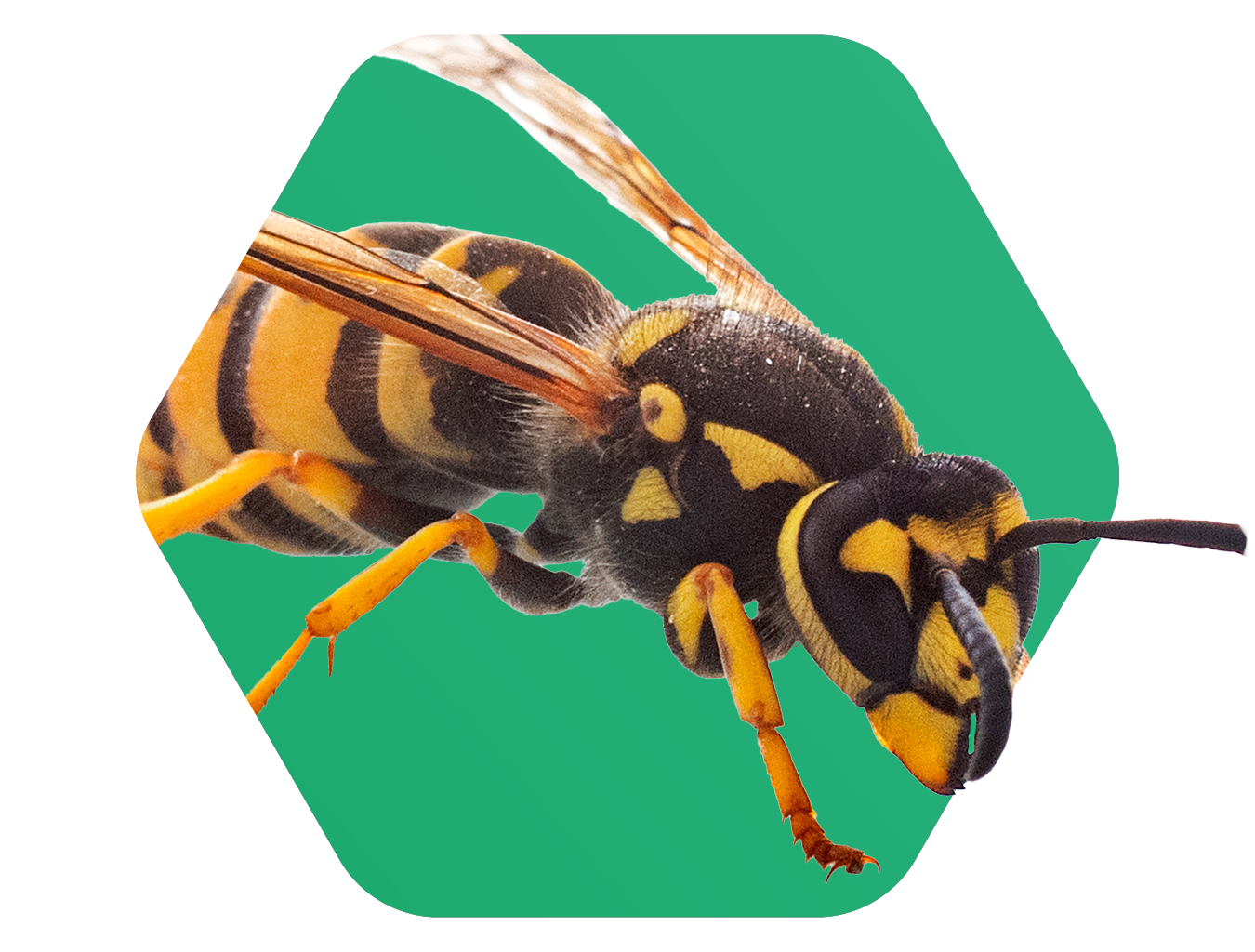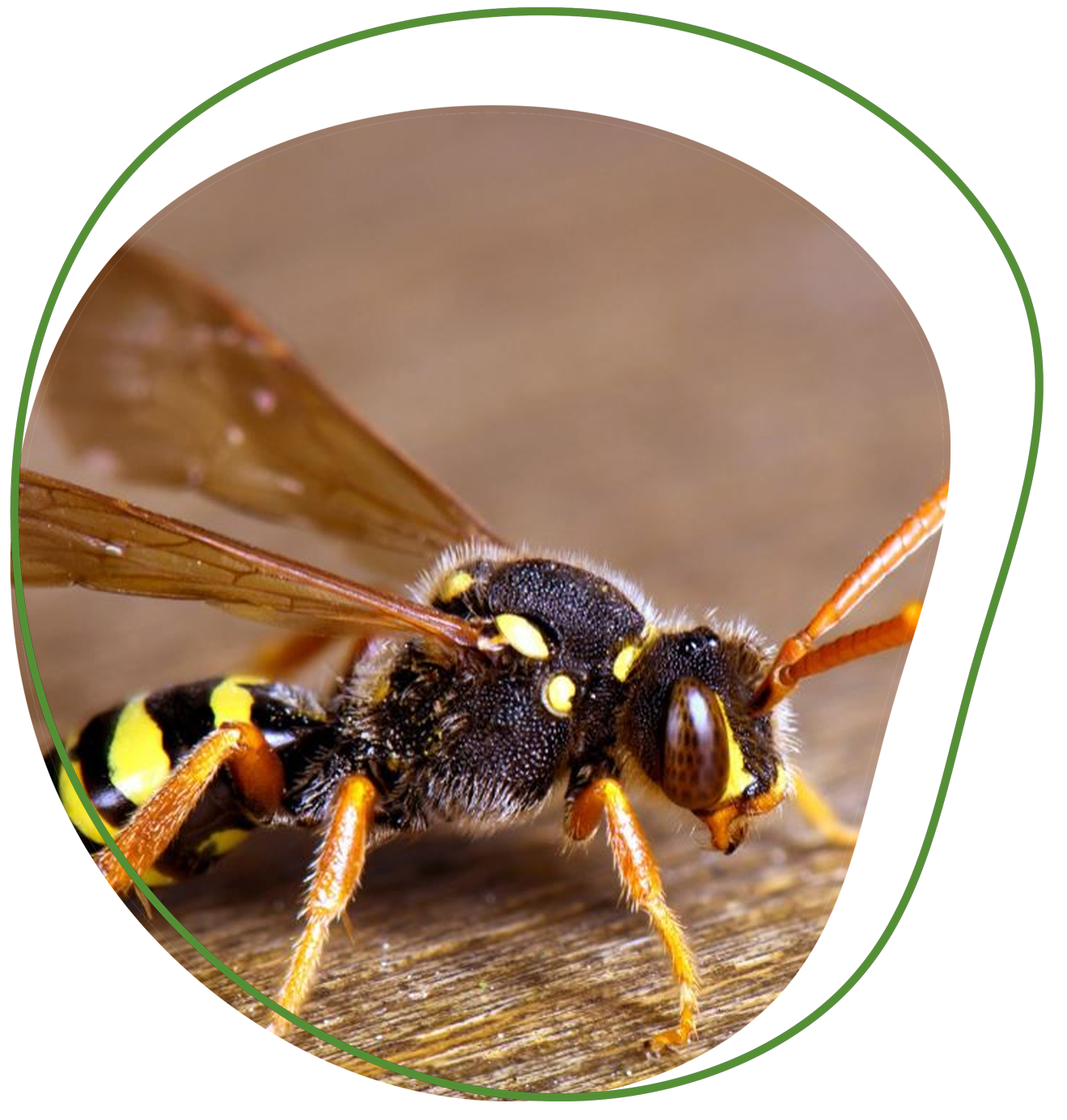Wasps
At Pest Solutions Plus, we ensure complete removal of wasps and their nests from your property, reducing the risk of them returning.
Wasps, hornets, and yellow jackets can ruin your backyard BBQ with painful stings. While they play a role in the environment, they often build nests in sheltered areas like roof eaves, attics, and under decks. Our Four Seasons preventative service includes nest removal and regular treatments to keep these pests at bay.

Wasps
The wasp is medium sized flying insect that is found all around the world. The wasp is known for its black and yellow markings which means that some wasp and bee species are commonly confused.
The wasp is found in all the countries in the world, on every continent with the exception of the polar regions. There are around 75,000 recognized species of wasp worldwide that grow to around 2/3 inch long.
The wasp is most commonly known for its poisonous sting, that if a human is stung can often swell into a painful lump that takes a few days to soothe. Some people are allergic to wasp stings meaning the wasp sting can be fatal.
Not all wasps can sting though but those that can often die once they have used their sting has it is joined onto their rear end of often becomes dislodged. When a wasp dies it releases a smell (called a pheromone) which warns the other wasps of danger and that it needs help.
Like many other insect species, the wasp is social insect and many wasps, as many as 10,000, inhabit just one nest. The queen wasp is the only breeding female and she builds the nest from a papery substance that is made up of chewed wood and plants. Typically, the wasp only lives for 12 – 22 days.
Wasps are omnivorous animals and therefore eat a mixture of plants and other animals. As with bees, the wasp prefers the sweeter plants and primarily eats nectar, fruits and honey. Wasps also eat insects and even large caterpillars.
Despite their bright colours to deter predators, wasps are eaten by a number of different animals around the world including birds, amphibians, reptiles and various species of mammal.
The queen wasp lays her eggs inside the nest which hatch in a number of days. When the wasp larvae hatch they are cared for by the other wasps in the nest and begin to hunt for food to bring back to the nest. Wasps are known to travel nearly half a mile away from the nest in search of food.
Wasps frequently build their nests indoors, both in attics and inside houses, however it is unusual to find a nest in a part of a house that is used regularly but it does happen. Most of the time nests are built in lofts, sheds, gardens and garages etc. If you are finding wasps inside your home on a regular basis, there is a good chance that you have a nest within your home. Wasps can squeeze through the smallest of gaps and can even get through the gap in down lights (flush fitting lights in the ceiling).
Common wasps and hornets will nest in the ground in old vole or mouse holes, rabbit burrows etc, they will also use any other suitable underground space to build their nests. Cavities in walls and voids behind wooden sleepers are also favorite places.
Honey bees differ from wasps, and although they are not a protected species at the moment, where ever possible every effort must be made to save them. Most pest controllers will not have the means or motivation to extract honey bees from awkward to reach places. Increasingly beekeepers are arming themselves with new methods of getting bees out of cavity walls and lofts etc. If you find yourself with a honey bee swarm or colony, find your local bee collector and speak to them about the problem before taking the decision to kill them. If for some reason the colony cannot be removed and has to be destroyed, there are some regulations about treatment. After a colony has been treated and killed, all entrances must be blocked as soon as possible to prevent other foraging bees coming into contact with any insecticide. Preferably all honey combs should be removed (but sometimes this is not possible or financially viable).

Whether you’re a homeowner, restaurant, storage facility, or manufacturer, our expert technicians are ready to help.
Copyright © 2024 | Pet Solutions Plus | 9903 Titan Ct Unit #13 Littleton, CO 80125 | 720-583-0158 | Developed by Subsilio Digital
